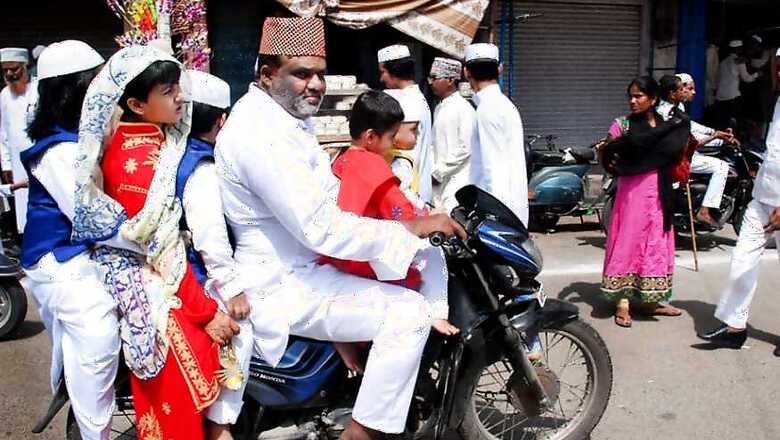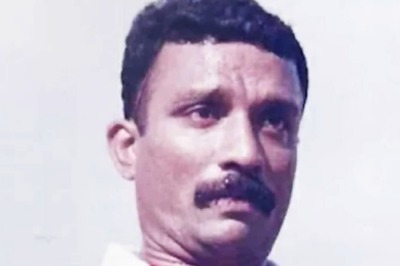
views
The debates on caste-based reservation often remain quite predictable. The known binaries such as caste vs economic backwardness, social marginalisation vs merit, and public sector vs reservation in private sector are evoked to endorse a few established positions on SC/ST/OBC reservation.
In fact, the notion of reservation is posed as an isolated political phenomenon by political elites, as if communalism, gender discrimination and globalisation do not affect the lives of those communities which are legally eligible for reservation in India.
The declaration passed by a few Pasmanda Muslim organisations, Political Agenda of Pasmanda Muslims in Lok Sabha Elections, 2014 offers a very relevant critique in this regards. This declaration does not merely address the multifaceted question of reservation in a nuanced legal-constitutional manner, but also establishes a link between caste question and the other relevant political issues such as globalisation, communalism, internal diversity of social-religious groups, adequate representation of women and corruption.
There are three significant points of the declaration, which need to be highlighted.
The declaration demands:
Scrapping of Para (3) of Constitution (SCs) Order, 1950 so that Dalit Muslims and Dalit Christians are duly included in the SC list and they are not discriminated against on the basis of religion under Article 341 of the Indian Constitution.
It is important to remember that the Constitution (SCs) Order, 1950 says, “No person who professes a religion different from the Hindu, the Sikh or the Buddhist religion shall be deemed to be a member of a Scheduled Caste”.
According to the original order passed in 1950, only the Hindu caste groups were eligible for inclusion in the SC list. This order, however, was amended in 1956 and 1990, respectively, for accommodating the Sikh and Buddhist caste groups.
The order ‘communalises’ the category of Scheduled Caste. It is based on a strong assumption that the caste-based social inequalities are merely a reflection of a polluted form of Hinduism. Therefore, the argument goes, there is a need to eradicate bad ‘social practices’ through reservation for wider Hindu social reform. The order, in this sense, disregards the long struggles of Dalit communities for independent identity and dignity by confining them into the established Hindu fold. In addition, the order appears to offer a legitimacy (though rather indirectly) to the Hindu-rightists’ appeal for an ‘indivisible unity of the entire Hindu Society including Harijans and tribals’
The Pasmanda politics, on the other hand, offers a creative reinterpretation of the complex relationship between communalism and caste-based reservation. The demand that Muslims and Christian ‘Dalit’ castes should also be given the SC status points toward the fact that caste-based exploitation is not exclusively related to any particular religious group.
The proposal to redesign the OBC category also reflects a very different elucidation of an India-specific secularism in relation to caste-based reservation. The declaration asks the state to chalk out:
…a quota for Extremely Backward Castes (EBCs) within OBC quota at the Central and State levels (the Bihar formula) where the backward caste Muslims could be clubbed together with similarly placed Hindu caste groups. This is a more judicious and non-communal demand than the 4.5% sub-quota for OBC-Minorities moved by the Congress Party before last Lok Sabha elections.
The demand to create an EBC within OBC category establishes a crucial link between backwardness and wider socio-economic stratification of society. This proposed restructuring, in principle, recognises the significance of the caste-based reservation for OBCs. Yet, underlines the fact that ‘OBC’ is not a monolithic category. Precisely for this reason, a differentiated approach to deal with the multi-layered phenomenon of backwardness is demanded.
Finally, the declaration recognises the limits of reservation and calls upon the political establishment to evolve a wider plan of affirmative action. It is claimed that:
State support to the artisans, crafts-persons, agricultural labourers and other cottage and small-scale industries through effective subsidies, credit and loan facilities, marketing support, skill upgradation, etc.
In this case, the state is asked to play a much greater role to deal with the problems of those occupational groups, which have been facing the direct onslaught of globalisation in the country. This demand is not caste-based. Rather, the occupational identity of a group is highlighted simply to underline the ways in which caste-occupation are amalgamated at various levels.
The declaration, in a way, shows an interesting blending of two discourses. The declaration responds directly to the recent policy discourse, particularly the recommendation of Misra Commission Report, which has revisited some of the most crucial questions concerning the constitutional status of caste-based reservation.
At the same time, it tries to articulate a secular position without giving up the identity of Pasmanda Muslim and/or occupational backwardness. This political uniqueness of the Pasmanda discourse needs to be recognised — not only for initiating informed debates on caste-based reservation but also to talk about the notion of social transformation in contemporary India.
(The author is Associate Professor at CSDS, New Delhi. Views are personal.)




















Comments
0 comment